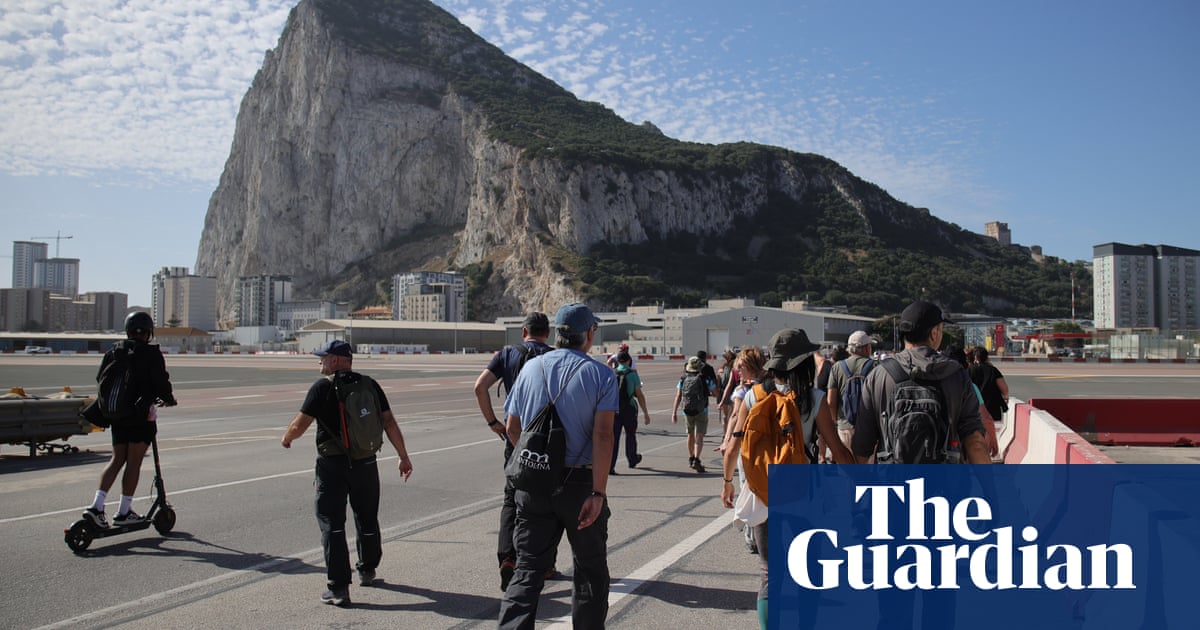The UK andGibraltarare on the brink of an agreement which would see Eurostar-style dual border controls implemented at the territory’s airport.
David Lammy, the foreign secretary, and Fabian Picardo, Gibraltar’s chief minister, are meeting EU and Spanish negotiators in Brussels today in a bid to get the deal over the line.
The UK and Spain have been engagedin on-off negotiations for four yearsover Gibraltar’s land border with Spain. The talks have been focused on allowing free movement between two territories by seeing Gibraltar enter the EU’s passport-free Schengen area.
Under the terms of the agreement being thrashed out on Wednesday, travellers arriving atGibraltarairport would show their passports to British and Spanish border officers.
The system would mirror the one in place for Eurostar travellers at St Pancras airport, where travellers go through British and French passport control before boarding trains to the continent.
Lammy and Picardo are due to meet Maroš Šefčovič, the European Commission vice-president, and José Manuel Albares, the Spanish minister for foreign affairs, in Brussels on Wednesday in a bid to finalise the deal.
British and Gibraltarian ministers held a meeting on Wednesday morning “to agree final parameters for negotiation”,Picardo said on X on Wednesday.
“It’s time to try to finalise arrangements for [a] lasting, stable relationship between Gibraltar and the EU/Spain which is safe, secure and beneficial and which protects our people and gives certainty to frontier workers with a view to delivering more prosperity for all in our part of the world,” he wrote.
A UK government official said: “We’re not going to Brussels to rubber stamp a deal. Hard negotiations in the room ahead on a number of sticking points.”
A Spanish foreign affairs ministry source said: “Our wish, as ever, is to make as much progress as possible and to reach a deal as soon as possible.”
An estimated 15,000 people cross the land border between Gibraltar and Spain every day. At present, Gibraltar residents can cross using residence cards without having their passports stamped, and Spanish citizens can cross using a government ID card.
The deal would allow thousands of Spanish workers to continue entering the British territory without checks, and Gibraltar residents to regain the freedom of movement with the EU which they had before Brexit.
But the agreement is likely to come under attack by the Conservatives and Reform UK because it would mean UK citizens arriving at the British territory will have to show their passports to Spanish border guards.
The Conservativescame close to striking a dealon border checks in Gibraltar this time last year butthe talks ultimately collapsed without a conclusion.
Albares warned last month that the Gibraltar border issue would need to be settled if Keir Starmer’s government wanted to pursue a closer relationship with the EU.
Gibraltar is a British overseas territoryon the southern tip of the Iberian peninsula, where it shares a border with Spain. It has been ruled by Britain since 1713, but is self-governing in all areas except defence and foreign policy.Spain claims sovereignty over the territory, but Gibraltar’s 1969 constitution states that there can be no transfer of sovereignty to Spain against the wishes of locals.
